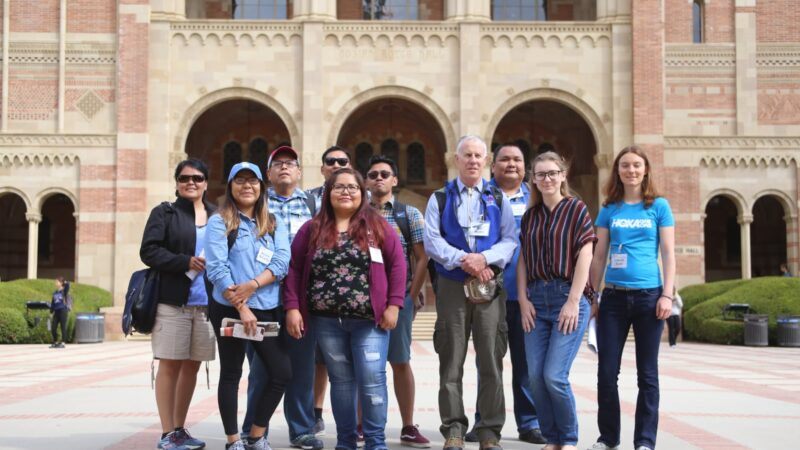We created Environmental Justice and First Nations as a way to recognize and amplify the voices of Indigenous people. This program aims to recruit and retain Indigenous students in STEM fields, provide hands-on research opportunities for students at tribal institutions, support the learning of different Indigenous research frameworks and epistemologies, and recognize Indigenous leaders from different communities.
Central High School
Central High is a low-resource school run by United American Indian Involvement, Inc. with students typically supervised by a Los Angeles Unified School District teacher. The school operates out of workbooks and students are primarily self-taught; therefore, these motivated and underserved students receive very little formal science education. During outreach to students at Central High, we have discussed work by First Nation activists and scientists working to address environmental justice issues facing Indigenous communities. We also conduct hands-on activities and share information about fundamental principles relating to fracking, oil spills and clean up, air quality’s unequal effect on different populations, contaminated soils, and real-world water purification systems, and ocean acidification.
Navajo Technical University
A partnership with Navajo Technical University presents the opportunity to work with a passionate group of students in environmental science and other STEM fields. The inclusion of peoples of unique cultural perspectives, including Indigenous scientists, and collaborations between diverse individuals and organizations enriches science by drawing on different academic training and varied personal experiences, allowing scientists to frame and understand their research through new lenses.
Our activities include reciprocal visits of students and faculty to introduce people to relevant scientific projects, advisors, and collaborators. We provide information and research opportunities to undergraduate students at Navajo Technical University hoping to pursue graduate school, and we help support their professional development. These interactions foster cultural awareness and retention of undergraduate and graduate students and faculty in STEM at both institutions.
Learning about Leadership from Community Elders
We work with storyteller and Native Hawaiian leader, Pono Shim, who reminds us of our relational connections. Pono considers his exposure to Hawaii leadership philosophies as a child to be the backbone to his ideas, actions, and words. He is sought out as a teacher of leadership, and he claims not to teach leadership but rather shares how he lives his life and what he has learned from his family.

